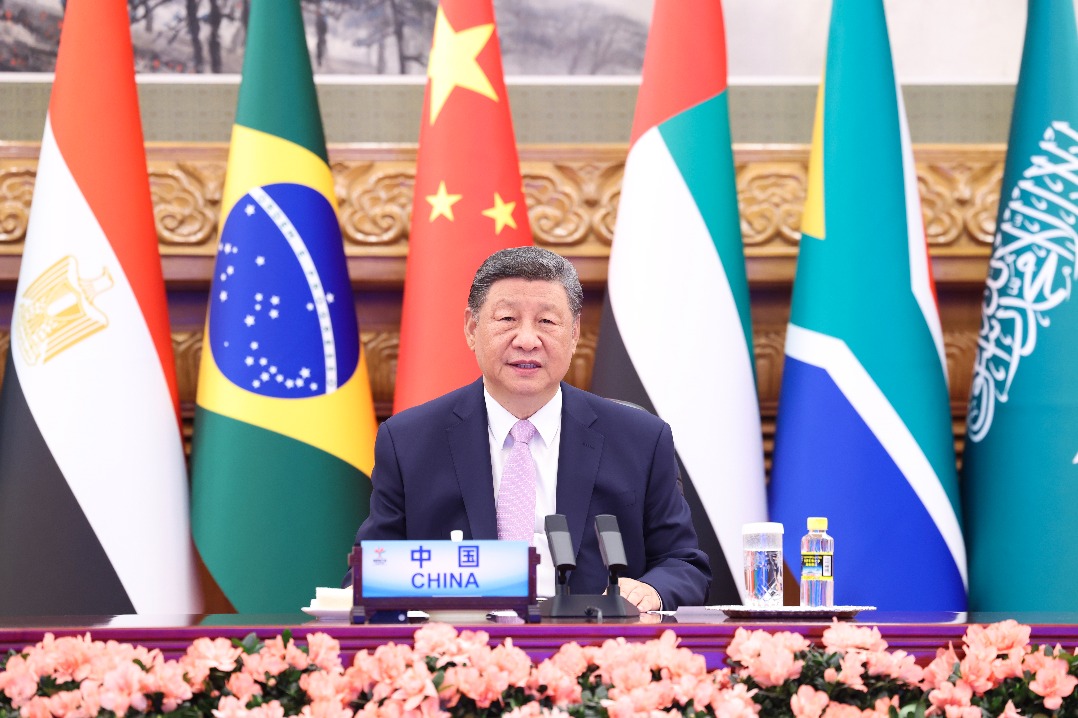Military modernization aimed at promoting peace

 |
| SHI YU/CHINA DAILY |
 |
| Cui Jianshu [Photo/China Daily] |
Are these media claims true? Let us analyze the People's Liberation Army's contribution to humanitarian relief work, peacekeeping missions and international efforts to thwart piracy before drawing a conclusion.
After the end of the Cold War, the possibility of a destructive war between great powers has declined significantly, but disputes among countries, domestic tensions, terrorist attacks and major natural disasters have become more frequent. Among other things, these developments have forced millions of people to flee their homes and seek asylum in other countries, leading to a humanitarian crisis.
To deal with such crises, the United Nations General Assembly established the Emergency Relief Coordinator in December 1991. The then UN secretary-general set up the Department of Humanitarian Affairs, which oversees the coordination of humanitarian response, policy development and humanitarian advocacy. Accordingly, the Chinese government and military departments established a mechanism called "providing humanitarian aid of emergency relief supplies for disaster victims worldwide".
Beginning with the assistance to Afghanistan in 2002, Chinese troops have performed dozens of international humanitarian tasks worldwide, offering relief supplies worth more than $100 million in the form of tents, medicines, foods and medical equipment to those countries hit by disasters. And in 2009, the China International Search and Rescue team became the 12th qualified corps in the world, and the second in Asia, to undertake international heavy rescue operations (a special type of firefighting and providing emergency medical services).
The PLA has taken part in many dangerous and arduous humanitarian and relief missions. After the outbreak of the Ebola virus epidemic in West Africa, mainly in Guinea, Liberia and Sierra Leone, in 2014, China sent a rescue team carefully chosen from the 302 PLA Hospital even as other countries kept evacuating their citizens from the affected areas. The medical aid the PLA provided for the people in those countries helped curb the spread of the Ebola virus.
As disputes among less-developed countries have risen in recent years, the UN has taken up peacekeeping missions in order to defuse regional tensions and alleviate the impact of ethnic, sectarian and civil wars. And China's contribution to the UN's efforts has been considerable. Since joining the UN Special Committee on Peacekeeping Operations in 1988, China sent military observers to the UN Truce Supervision Organization in 1990 and formally built a peacekeeping force to carry out the UN's tasks in Cambodia in 1992.
China has been making increasing contributions to UN peacekeeping missions to promote world peace and security. First, China has made huge contributions to UN missions in terms of manpower, materials and financial resources. Last year, it contributed $844 million to UN peacekeeping operations, which accounted for 10.2 percent of the total expenditure-the second-highest contribution among all countries.
Second, the PLA's peacekeeping capability has improved over the years. At present, 2,409 Chinese peacekeepers are engaged in peacekeeping missions abroad.
Addressing the Peacekeeping Summit at the UN Headquarters in New York in September 2015, President Xi Jinping pledged that China would build a standby peacekeeping force of 8,000 troops to help strengthen UN peacekeeping operations. Chinese troops are taking part in more and more diversified peacekeeping missions; in fact, they are now engaged in nine different areas, including engineering, transportation and medical treatment.
Third, China's peacekeeping operations have helped stabilize security in many regions. So far, Chinese peacekeeping troops have removed more than 9,000 land mines and other explosives, built or repaired 10,000 kilometers of roads and 300 bridges, transported over 1 million metric tons of materials and treated about 130,000 patients.
Until 2008, piracy was rampant in the Gulf of Aden and the waters off Somalia. After the UN Security Council allowed countries with commercial interests in the region to send their naval vessels to escort ships in the Gulf of Aden on getting clearance from Somali authorities, China dispatched the first batch of the PLA Navy's ships to those waters to protect commercial vessels from pirates.
The PLA Navy has successfully performed its escort duties for nine years. The expanding scale of the PLA Navy's convoy fleets shows it is committed to fulfilling its international responsibilities as a rising power. By April 9 this year, the Chinese navy had sent 25 fleets and accomplished 1,029 escort missions involving 6,337 ships. In actural terms, the Chinese fleets have thwarted pirate attacks on 43 ships.
Besides, the Chinese navy's ability to safeguard international maritime security has greatly increased, and it is more capable of executing long-term, long-distance and challenging tasks. For instance, the 25th fleet had successfully escorted ships for 119,768 nautical miles till July this year.
The Chinese military's commitment to humanitarian relief work, peacekeeping and fighting piracy is not only aimed at safeguarding China's national security but also to provide public goods for global security. Perhaps a Chinese saying-measure the stature of great men by the yardstick of small men-can help explain why some foreign media outlets hype up the "China threat" theory. Facts show that China's increasing defense budget will never pose a threat to world peace. On the contrary, China is committed to contributing more to ensure global security and stability.
The author is a professor of international studies at PLA University of International Relations.


































